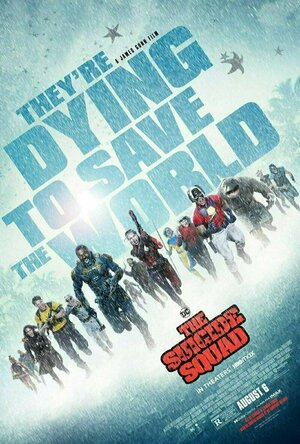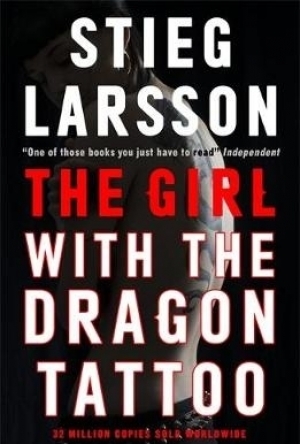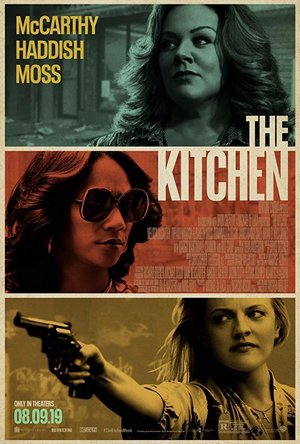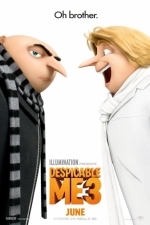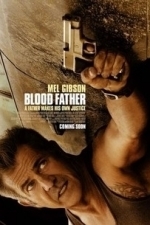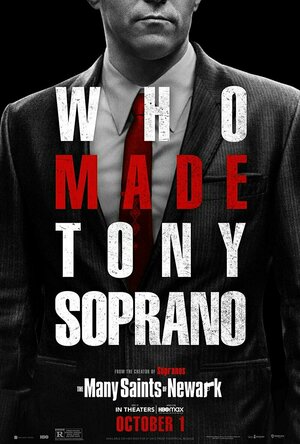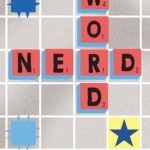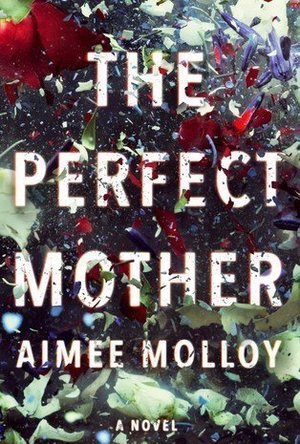Search
Search results
Jesters_folly (230 KP) rated The Suicide Squad (2021) in Movies
Aug 4, 2021
The Suicide Squad is a (possible) reboot that may or may not follow on from Suicide Squad and (or only) Birds of Prey. Honestly I'm not sure that even DC knows what's going on with their movie time line. Anyway, Margot Robbie and Joel Kinnamen return as Harley Quinn and Rick Flagg to lead another team of criminal misfits on an impossible mission (or, if it's a reboot like James Gunn says then it's the first time they are together and we ignore that Flagg askes Harley why she's back in prison or that Waller's team are checking who has worked with who). This time task force X are sent to the island of Corto Maltese to find and destroy 'Project Starfish'.
Ok so 'The Suicide Squad' is a good film, it looks like it has learned form the problems of the first film and incorporated the humour from 'Birds of Prey'. Firstly It's not as formulaic as the first film, a problem that is caused by the premise of 'Task Force X', if each member of the task force is chosen because they have a skill that is useful for the mission then you would expect that skill to be used and the first film took this too literally, each member had a scene where they did their thing then they just faded into the background and 'The Suicide Squad' avoids this by focusing on the characters was, well characters and not powers.
The film is very action driven and very violent but, unlike some of the other recent DC films it's not dark, it has more of a 'Grindhouse' feel than the dark, brooding style of the Batman/Superman/Justice league films (I liked those but they were a bit heavy in parts). The Suicide Squad has humour in it, some of which is quite immature but it fits the tone of the film. The violence and humour is some what balanced out by the comic book feel the film has, King shark, Weasel and Staro are both some what cartoony in appearance and some of the costumes are straight out of the comic books and I think that this is what managed to keep it at a (UK) rating of 15 because (and I know I've said this) it's violent, it's bloody, people get ripped apart and there is torture and lots of talk about killing children.
Somehow 'The Suicide Squad' is a fun watchable film and defiantly one of the better DC films, don't be put of by the original Suicide Squad (no 'The).
Oh and also there's a, after credit scene that set's up for a film that's been announced so stick around until the credits finish.
Ok so 'The Suicide Squad' is a good film, it looks like it has learned form the problems of the first film and incorporated the humour from 'Birds of Prey'. Firstly It's not as formulaic as the first film, a problem that is caused by the premise of 'Task Force X', if each member of the task force is chosen because they have a skill that is useful for the mission then you would expect that skill to be used and the first film took this too literally, each member had a scene where they did their thing then they just faded into the background and 'The Suicide Squad' avoids this by focusing on the characters was, well characters and not powers.
The film is very action driven and very violent but, unlike some of the other recent DC films it's not dark, it has more of a 'Grindhouse' feel than the dark, brooding style of the Batman/Superman/Justice league films (I liked those but they were a bit heavy in parts). The Suicide Squad has humour in it, some of which is quite immature but it fits the tone of the film. The violence and humour is some what balanced out by the comic book feel the film has, King shark, Weasel and Staro are both some what cartoony in appearance and some of the costumes are straight out of the comic books and I think that this is what managed to keep it at a (UK) rating of 15 because (and I know I've said this) it's violent, it's bloody, people get ripped apart and there is torture and lots of talk about killing children.
Somehow 'The Suicide Squad' is a fun watchable film and defiantly one of the better DC films, don't be put of by the original Suicide Squad (no 'The).
Oh and also there's a, after credit scene that set's up for a film that's been announced so stick around until the credits finish.
Eleanor Luhar (47 KP) rated The Girl with the Dragon Tattoo in Books
Jun 24, 2019
I've finally finished it! Whoop whoop!
This is a very different book to what I usually read. It contains a lot of strong language, sexual references, assault and Swedish finance. It also has a lot of investigating, which was my favourite part.
A financial journalist, Mikael Blomkvist, has been accused of libel after submitting a report about a rival company, owned by Hans-Erik Wennerström. The Wennerström Affair is huge - and has earned Blomkvist a three month stay in prison. This was all a bit hard for me to follow, as I don't know much about this subject. But I still managed to get the general gist of it.
A freelance worker at Milton Security is hired to research Mikael Blomkvist. Her name is Lisbeth Salander, and she's only in her twenties. Even so, she's probably the best worker Dragan Armansky has hired.
The client wanting a report on Blomkvist, Herr Frode, works for Henrik Vanger of the massive Vanger Corporation. Pleased with what they hear, they hire the journalist for a private matter - to solve the mystery of a missing girl from the 1960's.
While Blomkvist is researching the suspected crime, Lisbeth Salander is molested and raped by her legal guardian. She should turn him into the police, but that isn't her style. Instead, she gets her revenge.
Blomkvist finds out about the report written on him, and seeks out Salander. Together they begin to crack the case of Harriet Vanger. They are both put at risk when they discover the reason for Harriet's disappearance, and nobody's prepared for what they uncover.
Although the case is solved, the company Blomkvist works for - Millenium - needs revenge against Wennerström. To his surprise, Salander has just what he needs to really make a bang.
Like I said, this is quite an explicit novel - fathers raping their children, guardians attacking vulnerable young women, men sleeping with multiple women. The relationships seem to be ever-changing in this novel, but I suppose that's just realistic. But this is definitely not suitable for the faint-hearted, and there are some really horrific, visual descriptions that really will haunt you.
But if you like investigative or crime novels, I would definitely suggest giving it a go. It's not a quick read by any means, but it's cunning, it's realistic, and it's gripping. What more could you want from a novel of this genre? I really wasn't sure at first, as I just couldn't get into the multiple characters' stories or the whole situation with Mikael Blomkvist, but I did manage to get into the rhythm of it in the end, and really did enjoy it. For these reasons, I'm going to give Larsson's novel 4 stars. I'm seriously hoping I come across the next books in the series now!
This is a very different book to what I usually read. It contains a lot of strong language, sexual references, assault and Swedish finance. It also has a lot of investigating, which was my favourite part.
A financial journalist, Mikael Blomkvist, has been accused of libel after submitting a report about a rival company, owned by Hans-Erik Wennerström. The Wennerström Affair is huge - and has earned Blomkvist a three month stay in prison. This was all a bit hard for me to follow, as I don't know much about this subject. But I still managed to get the general gist of it.
A freelance worker at Milton Security is hired to research Mikael Blomkvist. Her name is Lisbeth Salander, and she's only in her twenties. Even so, she's probably the best worker Dragan Armansky has hired.
The client wanting a report on Blomkvist, Herr Frode, works for Henrik Vanger of the massive Vanger Corporation. Pleased with what they hear, they hire the journalist for a private matter - to solve the mystery of a missing girl from the 1960's.
While Blomkvist is researching the suspected crime, Lisbeth Salander is molested and raped by her legal guardian. She should turn him into the police, but that isn't her style. Instead, she gets her revenge.
Blomkvist finds out about the report written on him, and seeks out Salander. Together they begin to crack the case of Harriet Vanger. They are both put at risk when they discover the reason for Harriet's disappearance, and nobody's prepared for what they uncover.
Although the case is solved, the company Blomkvist works for - Millenium - needs revenge against Wennerström. To his surprise, Salander has just what he needs to really make a bang.
Like I said, this is quite an explicit novel - fathers raping their children, guardians attacking vulnerable young women, men sleeping with multiple women. The relationships seem to be ever-changing in this novel, but I suppose that's just realistic. But this is definitely not suitable for the faint-hearted, and there are some really horrific, visual descriptions that really will haunt you.
But if you like investigative or crime novels, I would definitely suggest giving it a go. It's not a quick read by any means, but it's cunning, it's realistic, and it's gripping. What more could you want from a novel of this genre? I really wasn't sure at first, as I just couldn't get into the multiple characters' stories or the whole situation with Mikael Blomkvist, but I did manage to get into the rhythm of it in the end, and really did enjoy it. For these reasons, I'm going to give Larsson's novel 4 stars. I'm seriously hoping I come across the next books in the series now!
Jesters_folly (230 KP) rated The Kitchen (2019) in Movies
Sep 24, 2019
Contains spoilers, click to show
When their mobster husbands are all sent to prison, three women decide that the only way they can survive is to take over their criminal enterprise’s, the quest is can their friendship last.
The Kitchen is based on comics released by DC Vertigo and is set in ‘Hell’s Kitchen’, New York during the 1970’s and focus’ on the lives of the wives of an Irish/American mob and their struggle to maintain a basic life style once their husbands have been arrested. Each of the women have a different type of relationship with their husbands; Kathy is in a seemingly normal, loving relationship, Claire is in an abusive relationship and Ruby is in a mixed marriage which is looked down on by alto for the other characters. One of the threads of the film is how each woman reacts to their husbands being away and what will happen when they return.
First off, this is not a comedy, I have seen some reviews where people seem to have been expecting a few laughs, mainly because of the casting of Melissa McCarthy and Tiffany Haddish. The Kitchen has violence, abuse, attempted rape, bad language, lots of guns, prostitutes and shootings but no humour. I think there was only one time anyone laughed (in the cinema audience) and that was when the characters were being shown how to dispose of a dead body.
I have to say that this is a good, well written female lead film, the premise is not forced and there is a reason the characters are female and in a situation that women would not normally be in, especially for the time it is set. Even though the characters are slightly stereotyped (The beaten woman trying to get stronger, the loving wife trying to keep things together) they are not turned into a joke or overly exaggerated and is a big step up from the Ghostbuster’s remake which also had McCarthy as part of an all-female team. Like Ghostbusters there is also a male character who helps the team, Gabriel, but the Kitchen avoids turning him into a joke unlike Chris Hemsworth in ghostbusters.
It could be said that the way the male characters are portrayed is bad, most of them are either thugs, stupid or crazy but this not due to any kind of feminism agenda but is a slightly stereotyped view of how a segment of people were seen, most of the people they deal with are the Irish/American mobsters. This is also shown by the Italians; they are not portrayed in the same way.
I do get the feeling that The Kitchen will be remembered more for scenes and its characters than for the overall movie as there are some bits that seem to drag but, overall it is a film worth watching.
The Kitchen is based on comics released by DC Vertigo and is set in ‘Hell’s Kitchen’, New York during the 1970’s and focus’ on the lives of the wives of an Irish/American mob and their struggle to maintain a basic life style once their husbands have been arrested. Each of the women have a different type of relationship with their husbands; Kathy is in a seemingly normal, loving relationship, Claire is in an abusive relationship and Ruby is in a mixed marriage which is looked down on by alto for the other characters. One of the threads of the film is how each woman reacts to their husbands being away and what will happen when they return.
First off, this is not a comedy, I have seen some reviews where people seem to have been expecting a few laughs, mainly because of the casting of Melissa McCarthy and Tiffany Haddish. The Kitchen has violence, abuse, attempted rape, bad language, lots of guns, prostitutes and shootings but no humour. I think there was only one time anyone laughed (in the cinema audience) and that was when the characters were being shown how to dispose of a dead body.
I have to say that this is a good, well written female lead film, the premise is not forced and there is a reason the characters are female and in a situation that women would not normally be in, especially for the time it is set. Even though the characters are slightly stereotyped (The beaten woman trying to get stronger, the loving wife trying to keep things together) they are not turned into a joke or overly exaggerated and is a big step up from the Ghostbuster’s remake which also had McCarthy as part of an all-female team. Like Ghostbusters there is also a male character who helps the team, Gabriel, but the Kitchen avoids turning him into a joke unlike Chris Hemsworth in ghostbusters.
It could be said that the way the male characters are portrayed is bad, most of them are either thugs, stupid or crazy but this not due to any kind of feminism agenda but is a slightly stereotyped view of how a segment of people were seen, most of the people they deal with are the Irish/American mobsters. This is also shown by the Italians; they are not portrayed in the same way.
I do get the feeling that The Kitchen will be remembered more for scenes and its characters than for the overall movie as there are some bits that seem to drag but, overall it is a film worth watching.
Gareth von Kallenbach (980 KP) rated Despicable Me 3 (2017) in Movies
Jul 11, 2019
Universal Pictures new release Despicable ME 3 stars Steve Carell, Kristen Wiig, Trey Parker, and brings back Miranda Cosgrove, Dana Gaier, and Nev Scharrel as Margo, Edith and Agnes.
Of course, there must be Minions, as well!
In this third installment of the animated series, Gru (Carell) and Lucy (Wiig) are fired from the Anti-Villain League for letting Balthazar Bratt (Parker) slip away, and embark on an adventure of trying to figure out “what’s next” in their lives.
In the midst of his employment dilemma, Gru discovers he has a long-lost twin brother Dru (also voiced by Carell), and takes the family off to see him in Fredonia. There, he discovers that his brother and his father have a successful pig-farming business, and appear to be quite wealthy. Lucy and the girls are immediately enamored of Dru, but Gru is not so easily won over, especially when he becomes jealous of his brothers luxurious hair.
Dru reveals that the family empire is built not just on the fruits of the pig empire, but also on their fathers’ secret villainy, and tells Gru that he was their dads’ biggest disappointment. Dru wants Gru to teach him how to be a super-villain, as he has always aspired to follow Gru’s footsteps.
While Dru and Gru set off to find and recover the giant diamond stolen by Balthazar Bratt, Lucy follows the girls around Fredonia.
The movie is full of 80’s tunes, brought on by the premise that Bratt is a failed 80’s child star.
The minions have less of a presence in this film, but when they are onscreen, they do provide the usual laughs we would associate with them. The best Minion scene is likely the musical number in prison.
I found the Balthazar Bratt character impossibly annoying, although I do acknowledge that that may have been “the point”. I found myself dreading his next interaction within the movie.
Despite that, I thought the movie flowed well, and I especially enjoyed the development of the relationships between Lucy and Margo, Edith and Agnes. Lucy’s “momma bear” moments made me smile.
My 8 year old son liked the movie a lot, and said his favorite parts were the bubble-gum weapon of the villain, and the new car that Dru and Gru use for their escapades. He especially liked that the end of the film left open the possibility of yet another installment of the Despicable Me series.
The child gives the movie 4 out of 5 stars, I myself would give it 3.5 out of 5, as I couldn’t quite get past the annoyance of the Bratt character, but besides that, overall, found it enjoyable.
Of course, there must be Minions, as well!
In this third installment of the animated series, Gru (Carell) and Lucy (Wiig) are fired from the Anti-Villain League for letting Balthazar Bratt (Parker) slip away, and embark on an adventure of trying to figure out “what’s next” in their lives.
In the midst of his employment dilemma, Gru discovers he has a long-lost twin brother Dru (also voiced by Carell), and takes the family off to see him in Fredonia. There, he discovers that his brother and his father have a successful pig-farming business, and appear to be quite wealthy. Lucy and the girls are immediately enamored of Dru, but Gru is not so easily won over, especially when he becomes jealous of his brothers luxurious hair.
Dru reveals that the family empire is built not just on the fruits of the pig empire, but also on their fathers’ secret villainy, and tells Gru that he was their dads’ biggest disappointment. Dru wants Gru to teach him how to be a super-villain, as he has always aspired to follow Gru’s footsteps.
While Dru and Gru set off to find and recover the giant diamond stolen by Balthazar Bratt, Lucy follows the girls around Fredonia.
The movie is full of 80’s tunes, brought on by the premise that Bratt is a failed 80’s child star.
The minions have less of a presence in this film, but when they are onscreen, they do provide the usual laughs we would associate with them. The best Minion scene is likely the musical number in prison.
I found the Balthazar Bratt character impossibly annoying, although I do acknowledge that that may have been “the point”. I found myself dreading his next interaction within the movie.
Despite that, I thought the movie flowed well, and I especially enjoyed the development of the relationships between Lucy and Margo, Edith and Agnes. Lucy’s “momma bear” moments made me smile.
My 8 year old son liked the movie a lot, and said his favorite parts were the bubble-gum weapon of the villain, and the new car that Dru and Gru use for their escapades. He especially liked that the end of the film left open the possibility of yet another installment of the Despicable Me series.
The child gives the movie 4 out of 5 stars, I myself would give it 3.5 out of 5, as I couldn’t quite get past the annoyance of the Bratt character, but besides that, overall, found it enjoyable.
Darren (1599 KP) rated Blood Father (2016) in Movies
Sep 2, 2019
Story: Blood Father starts as John Link (Gibson) who has recovered from his own substance abuse problems to be a tattooist while being parole. He has been searching for his daughter for years but when Lydia (Moriarty) calls him in need of help he races to her aid.
Link finds out that Lydia is in over her head which leads him into going on the run breaking his parole to protect her and locate the people who are trying to kill his daughter, using old connections along the way.
Thoughts on Blood Father
Characters – John Link is a former alcoholic convict, he has cleaned himself up but when his daughter finds herself in trouble he must go back into the routes that left him in prison, he must go after the men trying to kill his daughter, while stopping himself going off the bandwagon. Lydia is the teenager daughter runaway, she finds herself in too deep with the drug cartels but now she needs to trust her father to keep her safe. Jonah is the boyfriend of Lydia that she believes she killed cause the effects of the film. Preacher is one of the people Link turns to for help while Kirby is his support while trying to stay off the drinks.
Performances – Mel Gibson might have had troubled times recently but he shows us here the talent he holds to lead a movie in the action genre. Erin Moriarty is good in this film too because she shows us a street wise character beyond her years. Diego Luna is solid as the villain but we just don’t get enough from his character. This is a problem through the film, we don’t give the support characters enough time.
Story – The story is good, as it follows a distant father daughter relationship needing to rebuild after she finds herself in trouble with the law. This works for the story because we know how the aging hero is the new thing now, as an actor that can easily be the new one that saves his child and this gives us everything we want, we have moments of comedy as the two come from difference backgrounds but overall this is everything you would expect it to be
Action/Crime – The action is fire fights between Link and anyone that gets in his way, this does work well as the crime side of the story takes us into.
Settings – The settings show us the underworld that works for the hiding from potential trouble using no iconic landmarks which makes this fully believable.
Scene of the Movie – Showdown
That Moment That Annoyed Me – We don’t learn enough about the villains.
Final Thoughts – This is a good action film that is enjoyable, short sweet and gives you everything you want.
Overall: Action film 101.
Link finds out that Lydia is in over her head which leads him into going on the run breaking his parole to protect her and locate the people who are trying to kill his daughter, using old connections along the way.
Thoughts on Blood Father
Characters – John Link is a former alcoholic convict, he has cleaned himself up but when his daughter finds herself in trouble he must go back into the routes that left him in prison, he must go after the men trying to kill his daughter, while stopping himself going off the bandwagon. Lydia is the teenager daughter runaway, she finds herself in too deep with the drug cartels but now she needs to trust her father to keep her safe. Jonah is the boyfriend of Lydia that she believes she killed cause the effects of the film. Preacher is one of the people Link turns to for help while Kirby is his support while trying to stay off the drinks.
Performances – Mel Gibson might have had troubled times recently but he shows us here the talent he holds to lead a movie in the action genre. Erin Moriarty is good in this film too because she shows us a street wise character beyond her years. Diego Luna is solid as the villain but we just don’t get enough from his character. This is a problem through the film, we don’t give the support characters enough time.
Story – The story is good, as it follows a distant father daughter relationship needing to rebuild after she finds herself in trouble with the law. This works for the story because we know how the aging hero is the new thing now, as an actor that can easily be the new one that saves his child and this gives us everything we want, we have moments of comedy as the two come from difference backgrounds but overall this is everything you would expect it to be
Action/Crime – The action is fire fights between Link and anyone that gets in his way, this does work well as the crime side of the story takes us into.
Settings – The settings show us the underworld that works for the hiding from potential trouble using no iconic landmarks which makes this fully believable.
Scene of the Movie – Showdown
That Moment That Annoyed Me – We don’t learn enough about the villains.
Final Thoughts – This is a good action film that is enjoyable, short sweet and gives you everything you want.
Overall: Action film 101.
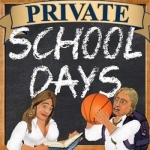
Private School Days
Games and Education
App
* Although universal, this version is primarily for iPhones and will appear large on an iPad. Those...
Bob Mann (459 KP) rated The Many Saints of Newark (2021) in Movies
Oct 5, 2021
Production design (1 more)
Great cast
Sopranos prequel that failed to hit the high note with this Sopranos virgin.
With Bond showing on virtually every screen of my local Cineworld, there were few other choices for movies to go see this week. So even though I've never seen "The Sopranos" TV series, I decided to give this movie prequel a shot.
Positives:
- Like any good mafia story, there's a nicely developed sense of place for the action. The film is set in the late 60's / early 70's, and the score and the production design nicely portray the period. The rise of black factions to challenge the white status quo, even in the crime world, make this a nice companion piece to "Judas and the Black Messiah" .
- Although he's been in films like "American Hustle" and "Selma", I wouldn't have been able to pick Alessandro Nivola out of a line-up. But he did a great job portraying the different sides of Dickie: both caring uncle and psychopathic gangster. And Odom Jnr is again impressive: I've not yet seen him deliver any role that's been sub-par.
- It's also impressive that they had Michael Gandolfini to play the younger self of his late father's role. Although I kept being distracted by how much he looks and acts like a young John Cusack!
Negatives:
- The story is told over many years and the script came across as quite uneven. There are regular cut-aways to Dickie visiting his uncle "Hollywood Dick" (Ray Liotta) in prison, which a lot of the time, to me, felt disconnected from the main plot.
- Whilst most of the ensemble cast do a good job, some of the portrayals felt like forced caricatures of "Goodfellas" characters.
- As a "Sopranos" virgin, I could tell that there were lots of Easter Eggs and in-jokes in the movie (e.g. The baby Christopher crying whenever Anthony talked to him). WIth "Sopranos" regulars Alan Taylor and David Chase in charge, that's not surprising. But I'm afraid all of these went right over my head.
Summary Thoughts on "The Many Saints of Newark": This wasn't a complete bust for me, which it might have been if it had been a sequel rather than a prequel. Indeed there are the occasional flashes of brilliance with certain scenes. But neither did I find it so engrossing that it's going to trouble my top 20 for the year.
I guess is that if you are a "Sopranos" fan, then you would get a lot more out of this than I did. But it's still an interesting way to spend a couple of hours.
(For the full graphical review, please check out #oemannsmovies on the web, Facebook or Tiktok. Thanks.)
Positives:
- Like any good mafia story, there's a nicely developed sense of place for the action. The film is set in the late 60's / early 70's, and the score and the production design nicely portray the period. The rise of black factions to challenge the white status quo, even in the crime world, make this a nice companion piece to "Judas and the Black Messiah" .
- Although he's been in films like "American Hustle" and "Selma", I wouldn't have been able to pick Alessandro Nivola out of a line-up. But he did a great job portraying the different sides of Dickie: both caring uncle and psychopathic gangster. And Odom Jnr is again impressive: I've not yet seen him deliver any role that's been sub-par.
- It's also impressive that they had Michael Gandolfini to play the younger self of his late father's role. Although I kept being distracted by how much he looks and acts like a young John Cusack!
Negatives:
- The story is told over many years and the script came across as quite uneven. There are regular cut-aways to Dickie visiting his uncle "Hollywood Dick" (Ray Liotta) in prison, which a lot of the time, to me, felt disconnected from the main plot.
- Whilst most of the ensemble cast do a good job, some of the portrayals felt like forced caricatures of "Goodfellas" characters.
- As a "Sopranos" virgin, I could tell that there were lots of Easter Eggs and in-jokes in the movie (e.g. The baby Christopher crying whenever Anthony talked to him). WIth "Sopranos" regulars Alan Taylor and David Chase in charge, that's not surprising. But I'm afraid all of these went right over my head.
Summary Thoughts on "The Many Saints of Newark": This wasn't a complete bust for me, which it might have been if it had been a sequel rather than a prequel. Indeed there are the occasional flashes of brilliance with certain scenes. But neither did I find it so engrossing that it's going to trouble my top 20 for the year.
I guess is that if you are a "Sopranos" fan, then you would get a lot more out of this than I did. But it's still an interesting way to spend a couple of hours.
(For the full graphical review, please check out #oemannsmovies on the web, Facebook or Tiktok. Thanks.)
For Scrabble Lovers
This eBook was provided by the publisher via NetGalley in exchange for an honest review
Canadian author Susin Nielsen continues to entertain children with her latest novel Word Nerd. Similarly with characters from previous novels, the pre-teen Ambrose is a bit of a misfit. With a deathly peanut allergy and an over protective parent who travels from job to job, Ambrose never manages to make any friends. Now settled in Vancouver, Ambrose is the happiest he has ever been. He is homeschooled away from all the bullies, has made a friend and found a passion in Scrabble. However, he has to keep all of this secret from his mother.
Ambrose is a funny, intelligent narrator who draws the reader in from the very first line: “The day I almost died…” Like many children who do not fit in with peers at school, Ambrose’s passions lie within less conventional past times, i.e. playing Scrabble. Able to quickly pull out several words from a jumble of letters – emphasized by the anagram chapter headings – he is overjoyed to learn of a nearby Scrabble club and knows just the person to accompany him.
Cosmo is a character that younger readers may struggle to come to terms with. An ex-convict and recovering drug addict, Cosmo also enjoys playing Scrabble and is persuaded by his annoying neighbour – Ambrose – to go to the club. An unconventional friendship sparks between the two of them, both unintentionally helping the other out. Cosmo encourages Ambrose to stand up to the bullies, whereas having a child around keeps Cosmo away from the things that resulted in a prison sentence. Despite the positives in this relationship, Ambrose’s mother believes Cosmo to be completely untrustworthy.
Although Ambrose and Cosmo are the main characters in Word Nerd, Ambrose’s mother maintains an important role. Having lost her husband suddenly and unexpectedly, she must have been terrified to learn of Ambrose’s peanut allergy. In order to prevent her son from leaving her as well, she has become overprotective and controlling, denying Ambrose the right to live his own life.
Some readers may have experienced similar situations either at school or with their parents. Word Nerd, whilst being a form of entertainment, explains the potential reasons behind these scenarios, helping children to understand what may be occurring in their lives. It also highlights the dangers of drug addictions and crime, but also suggests that people can change their ways.
Word Nerd, whilst voiced by a twelve year old, is more appropriate for readers in their teens. Ambrose is very mature at such a young age, and the book contains subjects of drugs and violence as well as mild sexual references. What Susin Nielsen has produced is an amusing story with a powerful message. Both entertaining and insightful, Word Nerd is perhaps Nielsen’s best novel yet.
Canadian author Susin Nielsen continues to entertain children with her latest novel Word Nerd. Similarly with characters from previous novels, the pre-teen Ambrose is a bit of a misfit. With a deathly peanut allergy and an over protective parent who travels from job to job, Ambrose never manages to make any friends. Now settled in Vancouver, Ambrose is the happiest he has ever been. He is homeschooled away from all the bullies, has made a friend and found a passion in Scrabble. However, he has to keep all of this secret from his mother.
Ambrose is a funny, intelligent narrator who draws the reader in from the very first line: “The day I almost died…” Like many children who do not fit in with peers at school, Ambrose’s passions lie within less conventional past times, i.e. playing Scrabble. Able to quickly pull out several words from a jumble of letters – emphasized by the anagram chapter headings – he is overjoyed to learn of a nearby Scrabble club and knows just the person to accompany him.
Cosmo is a character that younger readers may struggle to come to terms with. An ex-convict and recovering drug addict, Cosmo also enjoys playing Scrabble and is persuaded by his annoying neighbour – Ambrose – to go to the club. An unconventional friendship sparks between the two of them, both unintentionally helping the other out. Cosmo encourages Ambrose to stand up to the bullies, whereas having a child around keeps Cosmo away from the things that resulted in a prison sentence. Despite the positives in this relationship, Ambrose’s mother believes Cosmo to be completely untrustworthy.
Although Ambrose and Cosmo are the main characters in Word Nerd, Ambrose’s mother maintains an important role. Having lost her husband suddenly and unexpectedly, she must have been terrified to learn of Ambrose’s peanut allergy. In order to prevent her son from leaving her as well, she has become overprotective and controlling, denying Ambrose the right to live his own life.
Some readers may have experienced similar situations either at school or with their parents. Word Nerd, whilst being a form of entertainment, explains the potential reasons behind these scenarios, helping children to understand what may be occurring in their lives. It also highlights the dangers of drug addictions and crime, but also suggests that people can change their ways.
Word Nerd, whilst voiced by a twelve year old, is more appropriate for readers in their teens. Ambrose is very mature at such a young age, and the book contains subjects of drugs and violence as well as mild sexual references. What Susin Nielsen has produced is an amusing story with a powerful message. Both entertaining and insightful, Word Nerd is perhaps Nielsen’s best novel yet.
Kristy H (1252 KP) rated The Perfect Mother in Books
May 10, 2018
Compelling and suspenseful novel that grabs you from the start
The May Mothers--a group of parents who all gave birth in May--meet regularly to discuss their parenting woes, joys, and everything in between. On the 4th of July, the group decides to go out in the evening--their first time out since their children were born. They meet at a bar, and most of the group is looking forward to an evening of drinking and dancing. But Winnie, a single mother, is reluctant to leave her son, Midas, with a babysitter for the first time. And, that evening, all goes wrong: while Winnie is out, Midas is taken from his own home while the babysitter sleeps: stolen from his crib without anyone leaving a trace. Suddenly Winnie's life is splashed across the media, who are also saying the police have done everything wrong with the investigation from the start. Three of the other mothers only want to help Winnie get Midas back--but will it come at the cost of their own privacy as well?
This is a compelling and suspenseful novel that grabs you from the beginning, when we are told that it is a year later and a woman from the Mother's group is in prison due to Midas' disappearance. From there, the story rewinds, as told from the point-of-view of several women in the group, including Francie, Colette, Nell, and Winnie. It slowly unfolds with snippets from each and turns out to be incredibly suspenseful. The characters are all entwined a bit, and there are some excellent twists and turns as plot pieces unfold.
Even better, the novel offers some excellent commentary on how women are treated wrapped up in the mystery plot. Woven into the plot twists, we see some of the harsh realities of motherhood (in the U.S., especially) related to working mothers, breastfeeding, sleeplessness, and the overall pressure placed on new moms. As Winnie is increasingly tried in the media, Molloy does a good job of weaving in TV news and commentary on how mothers are expected to behave. It's well-done and I enjoyed the dual aspect of a well-done thriller but also the social commentary aspect, too.
Overall, I really enjoyed this one. It was very exciting and very surprising. At times, there often seemed to be a frustrating character involved with something to hide and making bad decisions (secretly copying files, hacking into things, etc.), but I suppose that comes with the territory. And yes, I am a little tired of the multiple POV/surprise twist format, but it worked so well here that I'll forgive. In the end, this is a really enjoyable novel with a vast cast of characters, some excellent twists, and amazing insight into motherhood. I'm really excited that this will be turned into a movie with Kerry Washington.
I received a copy of this novel from the publisher and Edelweiss in return for an unbiased review (thank you!).
This is a compelling and suspenseful novel that grabs you from the beginning, when we are told that it is a year later and a woman from the Mother's group is in prison due to Midas' disappearance. From there, the story rewinds, as told from the point-of-view of several women in the group, including Francie, Colette, Nell, and Winnie. It slowly unfolds with snippets from each and turns out to be incredibly suspenseful. The characters are all entwined a bit, and there are some excellent twists and turns as plot pieces unfold.
Even better, the novel offers some excellent commentary on how women are treated wrapped up in the mystery plot. Woven into the plot twists, we see some of the harsh realities of motherhood (in the U.S., especially) related to working mothers, breastfeeding, sleeplessness, and the overall pressure placed on new moms. As Winnie is increasingly tried in the media, Molloy does a good job of weaving in TV news and commentary on how mothers are expected to behave. It's well-done and I enjoyed the dual aspect of a well-done thriller but also the social commentary aspect, too.
Overall, I really enjoyed this one. It was very exciting and very surprising. At times, there often seemed to be a frustrating character involved with something to hide and making bad decisions (secretly copying files, hacking into things, etc.), but I suppose that comes with the territory. And yes, I am a little tired of the multiple POV/surprise twist format, but it worked so well here that I'll forgive. In the end, this is a really enjoyable novel with a vast cast of characters, some excellent twists, and amazing insight into motherhood. I'm really excited that this will be turned into a movie with Kerry Washington.
I received a copy of this novel from the publisher and Edelweiss in return for an unbiased review (thank you!).
<i>This eBook was provided by the publisher via NetGalley in exchange for an honest review </i>
Canadian author Susin Nielsen continues to entertain children with her latest novel<i> Word Nerd</i>. Similarly with characters from previous novels, the pre-teen Ambrose is a bit of a misfit. With a deathly peanut allergy and an over protective parent who travels from job to job, Ambrose never manages to make any friends. Now settled in Vancouver, Ambrose is the happiest he has ever been. He is homeschooled away from all the bullies, has made a friend and found a passion in Scrabble. However, he has to keep all of this secret from his mother.
Ambrose is a funny, intelligent narrator who draws the reader in from the very first line: “The day I almost died…” Like many children who do not fit in with peers at school, Ambrose’s passions lie within less conventional past times, i.e. playing Scrabble. Able to quickly pull out several words from a jumble of letters – emphasized by the anagram chapter headings – he is overjoyed to learn of a nearby Scrabble club and knows just the person to accompany him.
Cosmo is a character that younger readers may struggle to come to terms with. An ex-convict and recovering drug addict, Cosmo also enjoys playing Scrabble and is persuaded by his annoying neighbour – Ambrose – to go to the club. An unconventional friendship sparks between the two of them, both unintentionally helping the other out. Cosmo encourages Ambrose to stand up to the bullies, whereas having a child around keeps Cosmo away from the things that resulted in a prison sentence. Despite the positives in this relationship, Ambrose’s mother believes Cosmo to be completely untrustworthy.
Although Ambrose and Cosmo are the main characters in <i>Word Nerd</i>, Ambrose’s mother maintains an important role. Having lost her husband suddenly and unexpectedly, she must have been terrified to learn of Ambrose’s peanut allergy. In order to prevent her son from leaving her as well, she has become overprotective and controlling, denying Ambrose the right to live his own life.
Some readers may have experienced similar situations either at school or with their parents. Word Nerd, whilst being a form of entertainment, explains the potential reasons behind these scenarios, helping children to understand what may be occurring in their lives. It also highlights the dangers of drug addictions and crime, but also suggests that people can change their ways.
<i>Word Nerd</i>, whilst voiced by a twelve year old, is more appropriate for readers in their teens. Ambrose is very mature at such a young age, and the book contains subjects of drugs and violence as well as mild sexual references. What Susin Nielsen has produced is an amusing story with a powerful message. Both entertaining and insightful, <i>Word Nerd</i> is perhaps Nielsen’s best novel yet.
Canadian author Susin Nielsen continues to entertain children with her latest novel<i> Word Nerd</i>. Similarly with characters from previous novels, the pre-teen Ambrose is a bit of a misfit. With a deathly peanut allergy and an over protective parent who travels from job to job, Ambrose never manages to make any friends. Now settled in Vancouver, Ambrose is the happiest he has ever been. He is homeschooled away from all the bullies, has made a friend and found a passion in Scrabble. However, he has to keep all of this secret from his mother.
Ambrose is a funny, intelligent narrator who draws the reader in from the very first line: “The day I almost died…” Like many children who do not fit in with peers at school, Ambrose’s passions lie within less conventional past times, i.e. playing Scrabble. Able to quickly pull out several words from a jumble of letters – emphasized by the anagram chapter headings – he is overjoyed to learn of a nearby Scrabble club and knows just the person to accompany him.
Cosmo is a character that younger readers may struggle to come to terms with. An ex-convict and recovering drug addict, Cosmo also enjoys playing Scrabble and is persuaded by his annoying neighbour – Ambrose – to go to the club. An unconventional friendship sparks between the two of them, both unintentionally helping the other out. Cosmo encourages Ambrose to stand up to the bullies, whereas having a child around keeps Cosmo away from the things that resulted in a prison sentence. Despite the positives in this relationship, Ambrose’s mother believes Cosmo to be completely untrustworthy.
Although Ambrose and Cosmo are the main characters in <i>Word Nerd</i>, Ambrose’s mother maintains an important role. Having lost her husband suddenly and unexpectedly, she must have been terrified to learn of Ambrose’s peanut allergy. In order to prevent her son from leaving her as well, she has become overprotective and controlling, denying Ambrose the right to live his own life.
Some readers may have experienced similar situations either at school or with their parents. Word Nerd, whilst being a form of entertainment, explains the potential reasons behind these scenarios, helping children to understand what may be occurring in their lives. It also highlights the dangers of drug addictions and crime, but also suggests that people can change their ways.
<i>Word Nerd</i>, whilst voiced by a twelve year old, is more appropriate for readers in their teens. Ambrose is very mature at such a young age, and the book contains subjects of drugs and violence as well as mild sexual references. What Susin Nielsen has produced is an amusing story with a powerful message. Both entertaining and insightful, <i>Word Nerd</i> is perhaps Nielsen’s best novel yet.
